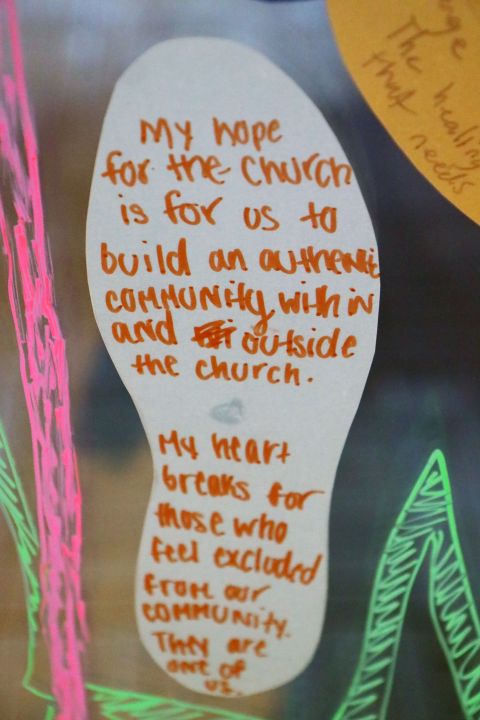 ~ by Br. Ernest J. Miller for National Catholic Reporter
~ by Br. Ernest J. Miller for National Catholic Reporter
Inspired by Pope Francis’ call for greater listening, presence and curiosity among the global church, nearly 400 students from more than 40 campuses across the Philadelphia metropolitan region joined a multipart listening process that culminated in an all-campus listening session at LaSalle University. Philadelphia Archbishop Nelson Perez participated in the listening session and delivered some thoughts at the end.
A major highlight of the event was the small discussion groups self-selected by students focused on six themes identified from the reports of cross-campus listening sessions: journeying from exclusion to inclusion, from fragmentation to wholeness, from discord to unity, from performance to integrity, from broken trust to account, from being led to leading.
Following the Pope’s call
With the theme “For a synodal church: communion, participation, and mission,” the church’s process of synodality is positioned to capture the joys and hopes, the griefs and anxieties of young people as they navigate uncertainty, transcend traditional religious boundaries and encounter a sense of wholeness. Recognizing the unique role colleges and universities play in the dialogical and listening processes that make synodality possible, Pope Francis encouraged Catholic higher education institutions to create spaces to listen to the joys and hopes, grief and anxieties of young people in our care.
Why Young People Need Synodality
There is a continuing trend of young Catholics disassociating not only with institutional Catholicism and Christianity, but all religion. Young Catholics find themselves in a holy frustration, wrestling with disjointed elements of reality afflicting the church, nation and world.
Katherine Angulo V., who prepares pastoral leaders for long-term ministry at the University of Notre Dame writes:
“Young people desire to be listened to… Like Jesus’ listening on the road [to Emmaus], our listening as teachers and ministers must take place on the road young people are traveling. We must go out to them. We must ask questions first, and then we must be prepared to answer the questions young people will inevitably ask us: Why do you stay? Why do you still believe?”
For young people, the experience of encountering a listening, curious and compassionate church becomes the yeast for fostering communion, participation and mission – the three markers that characterize the synod process in the church. To read the entire article, please click here
